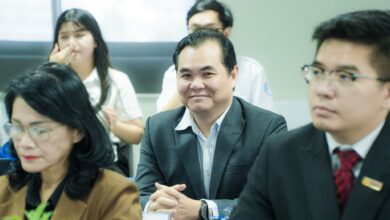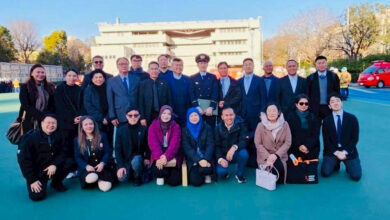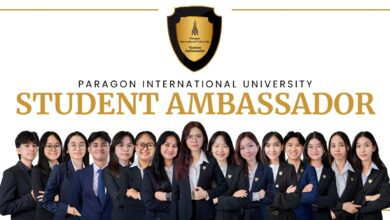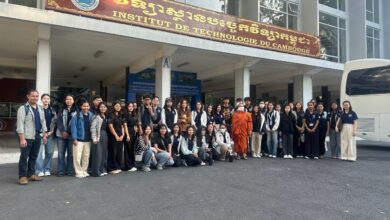Indonesia’s Higher Education Transformation: Key Insights from UNS Vice-Rector at AppliedHE Xchange 2025
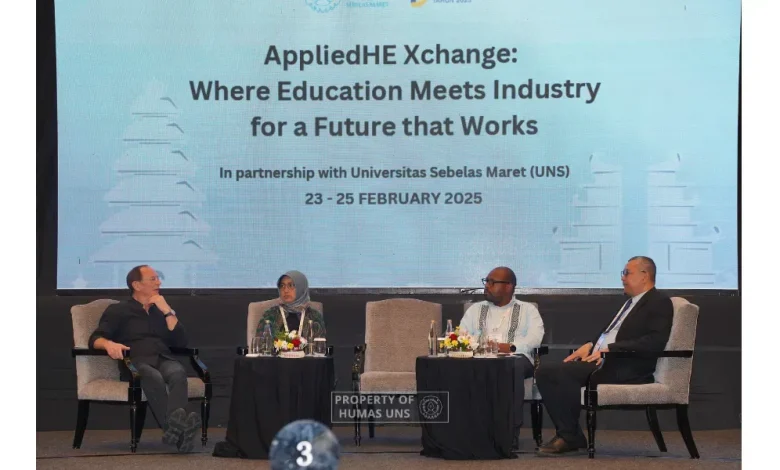
Universitas Sebelas Maret (UNS) participated in the AppliedHE Xchange 2025 conference, which took place in Bali on February 25, 2025. The conference centered on discussions regarding the transformation in higher education, featuring a presentation by Prof. Dr. Fitria Rahmawati, Vice-Rector for Academic and Research at UNS.
Transformations in Higher Education
In her presentation, Prof. Fitria discussed the significant changes currently taking place within Indonesia’s higher education system, aligning with the principle of “Mangesthi Luhur Ambangun Nagara,” which emphasizes societal advancement while upholding noble values. She detailed several components of this transformation, including curriculum reforms, innovative teaching methodologies, and technological advancements aimed at enhancing human resource capabilities.
Innovative Learning Methods
During a session titled “Education Policy: The Future of Higher Education Learning,” Prof. Fitria highlighted Indonesia’s integration of diverse learning methods. These methods blend traditional in-person instruction with synchronous and asynchronous online formats, such as Learning Management Systems (LMS) and Massive Open Online Courses (MOOC). The blended learning approach is intended to personalize educational experiences, which is considered important for improving the overall quality of higher education.
Internship Programs and Industry Collaboration
Additionally, UNS has successfully implemented internship programs through both traditional pathways and the “Merdeka Belajar Kampus Merdeka” (MBKM) initiative. This university has engaged in collaborative research efforts, including matching fund programs, illustrating the potential for university-industry cooperation.
Prof. Fitria underscored the significance of such collaborations, noting that UNS serves as a model for industry partnerships. The MBKM initiative promotes internships, joint research projects, and the involvement of industry experts as guest lecturers, enabling students to acquire practical knowledge that aligns with industry standards.
Expanding Access to Education
The conference also addressed the expansion of access to higher education in Indonesia through scholarship programs such as BIDIKMISI/KIP-K, the Indonesian Education Scholarship (BPI), and LPDP. These initiatives aim to enhance educational opportunities for students from underprivileged backgrounds while fostering the development of top talent within the country.
Collaborations for Global Challenges
In her concluding remarks, Prof. Fitria emphasized the necessity of cross-institutional collaboration to tackle global challenges in higher education. Partnerships with international universities and industries are deemed essential for improving educational policies and promoting innovation.
Panel Contributions
The session included contributions from notable panelists, including Kevin Downing from City University of Hong Kong and Sinethemba Mpambane from WSU South Africa, as well as Prof. Dr. Tirta Mursitama from Indonesia’s Ministry of Investment.
UNS’s Strategic Role
Budi Wahyono, Chair of the organizing committee, remarked that UNS’s involvement in the conference underscores Indonesia’s strategic role in fostering global partnerships, in line with the nation’s commitment to Sustainable Development Goal 17, which advocates for inclusive and sustainable educational development.
UNS continues to contribute to the advancement of higher education, both within Indonesia and on an international scale, through its focus on innovation and collaboration.
(Source: UNS)

